Harnessing Your Team's Emotional Intelligence to Boost Self-Efficacy & Mental Wellbeing.
What if burnout stems from you trying too hard to be someONE and neglecting that you’re actually someMANY?
What if everyone who knows you better can see it coming, but does not know how to break it to you?
What if….burnout is all about you becoming a cliché-version of people just like you?
What if your version of burnout is tied to the identity you created for yourself?
Oh! Can we discuss this?
What if burnout is identity related?
Once upon a time ‘mid-life-crisis’ used to be a topic.
It’s the phenomenon amongst people that have -to societal standards- “made it”. They are financially affluent, successful and accomplished, but they also got to the point where they question whether their life and what they do with it is actually truly meaningful. They ask: Do I want to continue on my path or do I need to reassess and reconstruct?
And when I grew up, my parents generation, used to condescendingly smile at people like that because it was considered as such a luxury problem to have.
“Poor little rich person - you have so much that you have the option and are considering to throw it all overboard and start something new afresh, or double- & triple down on buying things that reaffirm visually that you actually really made it - and so you need to show yourself, without any shadow of a doubt, that the path you have been trodding on so far has to be right one, simply because… well, just look at all the things you can have, vacations you can make and like-looking people you hang out with.”
Now that could be a predominantly immigrant specific reaction to this conflict-of-soul because my parents (and their friends) did not feel like they had the same options, but I also remember settled, local, and affluent parents of friends make sneering comments.
“Self-doubt is a sign of weakness. If you can’t be positive about your choices, you’re by definition not confident. And if you’re not confident, then how the heck did you get into this position of having the luxury of having a crisis about meaningfulness in the first place?”
If you were a person in mid-life-crisis, it didn’t matter which way your reaction was leaning towards: whether you decide to break with your current life and start a fresh, or if you double/triple down on convincing yourself that all your past choices where the right ones to take and the only right decision from hereon onwards is to continue as you were before…. in both cases you’ve become a cliché.
I know you know what a cliché is, but for the sake of being thorough, let me state the official definition.
A cliché is a phrase or expression that has been used so often that it has become overused and lacks originality. Clichés are often seen as uninspired and lacking in creativity because they have been used so frequently that they have lost their impact and wit. They are typically used to describe situations, emotions, or expressions that are common and familiar to many people, but because they are so widely experienced they also became stale and predictable.
And in this identity and burnout related context you’re a cliché because you were for too long someone who played – what I like to call – identity politics, believing that you can strategise your way through life by leaning too heavily on one identity to carry you through good as well as troubled times.
Being called a cliché, or feeling like one is not just hurtful because of the implied lack of originality – because we all on some level like to believe we’re special, right?! But also because the aspect of predictability.
You had it coming for a long time like so many others before you. It was so obvious, but you did not see it.
Highly capable, very successful people keep falling into the same dark hole. Like ants, marching blindly in the footsteps of those who came before them and no matter how good you are at what made you successful in the first place, in the context of a mid-life-crisis your individuality dissolved in the unity of conformity, as you became mere echo of those that walked the ant’s journey before you.
Ouch!
I do not know if this is a universally correct estimation of the times but it seems to me that this phenomenon of mid-life-crisis still exists, maybe even stronger than it ever did, but we do not refer to it as such. I don’t hear the term ‘mid-life-crisis’ anymore.
We clearly have more education and more vocabulary around it and nowadays the buzzword is: burnout. That is the predominant term we use.
Burnout is more than being temporarily stressed. It is constant overwhelm. The too-muchness of demands and the lack of time to get shit done as well as the inability to take a distance between your achievements (or lack there of) and your inherit worthiness.
Being overwhelmed can feel like you are being buried or suffocated under a heavy load of responsibilities, emotions, and stress. It can cause a sense of feeling unable to cope or manage, as if the demands and pressures around you are too much to bear.
Some common symptoms of feeling overwhelmed include:
- Physical tension, such as headaches, muscle aches, or digestive problems
- Emotional distress, such as anxiety, depression, or irritability
- Mental exhaustion, such as difficulty concentrating, forgetfulness, or confusion
- Behavioral changes, such as withdrawing from social activities or avoiding responsibilities
Overall, feeling overwhelmed creates a sense of loss of control and lead to feelings of helplessness, frustration, and …burnout – profound emptiness.
And whilst I believe it is good to see that this topic can now be more widely and openly discussed, not just privately, but in the context of work and even as a societal, systemic problem…
Burnout is just one side of the problem.
The other side is boreout.
Boreout is the lack of options and possibilities in ones life to get genuinely invested in and passionate about. And just like burnout, it has many origins and facets.
Maybe you never learned to focus on or get interested in something that has no monetary return or social prestige (like motherhood e.g.)
Maybe you had no other option than solely investing in one activity because it was either make a living or be poor and not able to provide.
I understand why we talk a lot about burnout – the word alone has connotations of being injured, being in pain and being consumed by something external. Burnout makes us a patient. And we care for patients.
Boreout however sounds like yet another luxury problem.
People with too much time and too many resources at hand get bored. People not used to put effort in get bored. Boredom and laziness sound like synonyms.
But here is how bore out can show up in your life and you tell me if it truly is just a luxury problem of privileged individuals:
Just like burnout boreout it comes in creeping slowly. What starts with occasional ennui usually ends up in full-on disengagement of life.
The tasks that once fueled your passion turned into repetitive motions, leaving you feeling disengaged and unfulfilled. Relationships lost their spark, and your personal pursuits feel Flat and uninspired – or you simply lost touch with them because you were using all your energy in your area of burnout. It’s like Life becomes a grayscale painting, devoid of excitement and purpose. The days blurr together, blending into a monotonous sea of unfulfilled potential and wasted opportunities for growth. To stay in this visual metaphor: The less color, saturation and contrast you have the harder it gets to remember what they looked like or imagining how to get them back, or feeling all of a sudden that more intensity is a scary thing that might harm you – afterall your burnout is mighty intense.
The toll of boreout extends beyond mere dissatisfaction.
It manifests as a deep sense of restlessness, a longing for something more meaningful. Self-esteem suffers as we question our abilities and wonder if we were destined to live a life stripped of purpose and passion. We feel trapped in a stagnant existence, and so we do not know what or how to be those other identities that could save us from burnout. Instead, we invest this restlessness in that area of burnout that constantly screams for our attention and time.
So identity related burnout is when these two come together.
Burnout as the over-emphasis and over-stimulation of one, of our main identity and a massive under-stimulations in all other areas of life that could widen our field or broaden our personality nd the experiences we have. PLUS the cliché aspect. Burnout, bore out and the predictability that everyone in your entourage sees, but you as the affected one don’t.
So I know that this a very crude over-simplification of the cause and the patterns are clearly much more complex than what I’m about to give as examples…
I believe we’ve all seen the cliché parts depending on whatever peoples main identities are.
- There is the finance person/ economist whose crisis is that he all of a sudden “grows a conscious” and decides to become a Buddhist, or at least a physio-therapist and heal people, instead of taking an overpriced commission for shifting peoples money digitally from A to B…. or just triples down on growing his wealth with the promise to do good with the extra cash… some factually do donate, but most donate to themselves in form of more over-priced status-symbols. – just look at TV series like Billionaire – there is a grain of truth to those stories, which is why we watch them.
- There are those that work in care and end up in their cliché crisis of compassion fatigue and either break with this lifestyle and pivot into something where they can live a more “selfish” side that has to do with self-expression and start an Etsy-shop selling their woodwork, or handcrafting earrings from plastics beads imported from some foreign country with cheap-as mass-manufacturing – rather than caring for others. or they triple down on caring and tell themselves that by heading a charity or not-for-profit community project on the side, in their little free time after work will make best use of their caring talents.
- There are expats that get confronted with the harsh reality of international life and that their hunger for adventure and living an “exotic” life out of their cultural ordinary does not compensate for the possible regret they worry will mess up what could be a life full of reliable belonging back home. It is one thing to make an honest mistake and then dealing with the consequences, but a complete other thing to realise that your choice to live abroad does not add the value and richness of flavour you were hoping for and that if you still continue to hold on to what you fear might just be a short-lives, immature dream, will screw you over in the long-run. Those people faced with an unfulfilling expat life usually end up going home after some time, deciding the sacrifice of predictability is not worth the cost of fundamental regret. Or they’ll stay, somewhat bitter because they feel, or actually truly they can’t go back and live what I like to call ‘the angry-immigrant life’… you decide which one is the break and which one is the tripling down expression of their crisis.
Again, these were just some examples and really shortened, streamlined, but I’m sure if you dig in your head to find examples of people who have been through mid-life-crisis you’ll find those were identity related. And if you have people in your entourage dealing with burnout, or you’re fearing that they’re heading right into one, you will surely also see that on the other side of burnout they have an equally heavy case of boreoout in the rest of their life happening.
So here you go:
Identity related burnout is and over-emphasis of one dominant identity and making it your number one identifier of self-worth whilst simultaneously under-serving other identities you have and therefore experiencing burnout and bore out at the same time.
There is a difference between having a role and living an identity.
A role is something you can put down, or take off like a jacket. It is also something where you can perform and easily, for a certain time being – so you can temporarily show up as someone you’re actually not.
An identity is something you’ve internalised and even if you wanted to: you can not not be yourself.
When life gets hard and we don’t feel we belong, or we feel like our life does not belong to us, or we fundamentally feel like this is not the way our story is supposed to go… then we’ve usually treated an essential part of ourselves (an identity piece) like a role. This means either pretending we’re someone we’re not, or being performative on the long, veery long run. Or we’ve adopted something that was meant to be a role that we play and were supposed to put down whenever it became to heavy, as an identity. we trained ourselves to give it such weight, it has become a defining piece of our being – when it actually shouldn’t.
So what can you do with all this information?
You can either look at your area of burnout and take the widely established performance coaching approach:
Look at your mental and behavioral patterns, make adjustments to your decision-making and time-management approach, practice becoming a better communicator and damn-it, finally learn to set better boundaries. So people need to learn to set boundaries with other people and others do need to learn to set better boundaries with themselves. Many successful people simply have become addicted to show off and be seen as someone with exeptional work-ethics and related results.
And this is all good and fine, but you can tell by my tone of presentation that I’m no great fan of this, simply because it feels like squeezing an already drained cash-cow even further. I do not know about you, but the idea of spending even more time (even if it is just mental time) in an area where you’re already spending too much time does not sound healthy to me. I do not know where I would take the energy reservoirs from to deal with the area of life that already frustrates me.
Instead, I much prefer what positive psychology is all about:
extending what is good and make it great. Whereas ‘regular psychology’ focuses on pathologies – so where the mental state falls into illness, positive psychology looks at what is sound and healthy and how to make it a strategy for wellbeing. So not just fighting the bad, but actively building the good an make it great.
This is obviously only an option when one is not in burnout yet. Because once you are, the patient is so hurt and in so much pain that they’re bleeding out. But if you’re not there yet, if you’re realising that something is out of balance and you’ve lost control and want to take over the reigns again, then
investing in building up your other identities is a smart strategy.
You’re giving your life another leg to stand on – or two , or three. It is tackling the boreout part of your crisis. It is all about exploring what joy and ease look, feel like and addressing what we’re so desperately longing for – a revival of our enthusiasm and drive and for some maybe even fun. And there is nothing frivolous about fun – it’s what create s positive, energy-giving connection between people (nurturing your interpersonal relations). But it also is a brilliant way to healthily feed your intrapersonal relation – the way you see yourself and biuld a broader, more robust and resilient – bad-weather-proof – personality.
And if you feel intruiged and want to just do that:
explore how to find and build your enthusiasm and want an easy way to start – I have two options for you. If you’re a private person let me guide yoou through the process of how to find that next right step for you, using positive psychology.
Conveniently this offer is called: the next right step.
And if you’re a leader and truely care about your employees and your team and want to start this journey to regenerative leadership: I can come in and show your people where to find their areas of goodness and what to do to bring them to great.
You will lead by example and give them the resource (me) and the time and together we’ll show them how to use an assessment tool I created that will show them where they have potential. Not to harvest their energy that they’re already to fuel their work time, but to build resilience and resources for regeneration outside the work identity.
The best side-eefect of it is:
once you know how to show up for yourself, you use the same principles to show up better for everyone around you. Positive interventions create positive upward cycles.
This offer is called Seeking Potential For Regenerative Leaders
If you want to read up on this more, I created a whitepaper on the subject and you can download it here.





